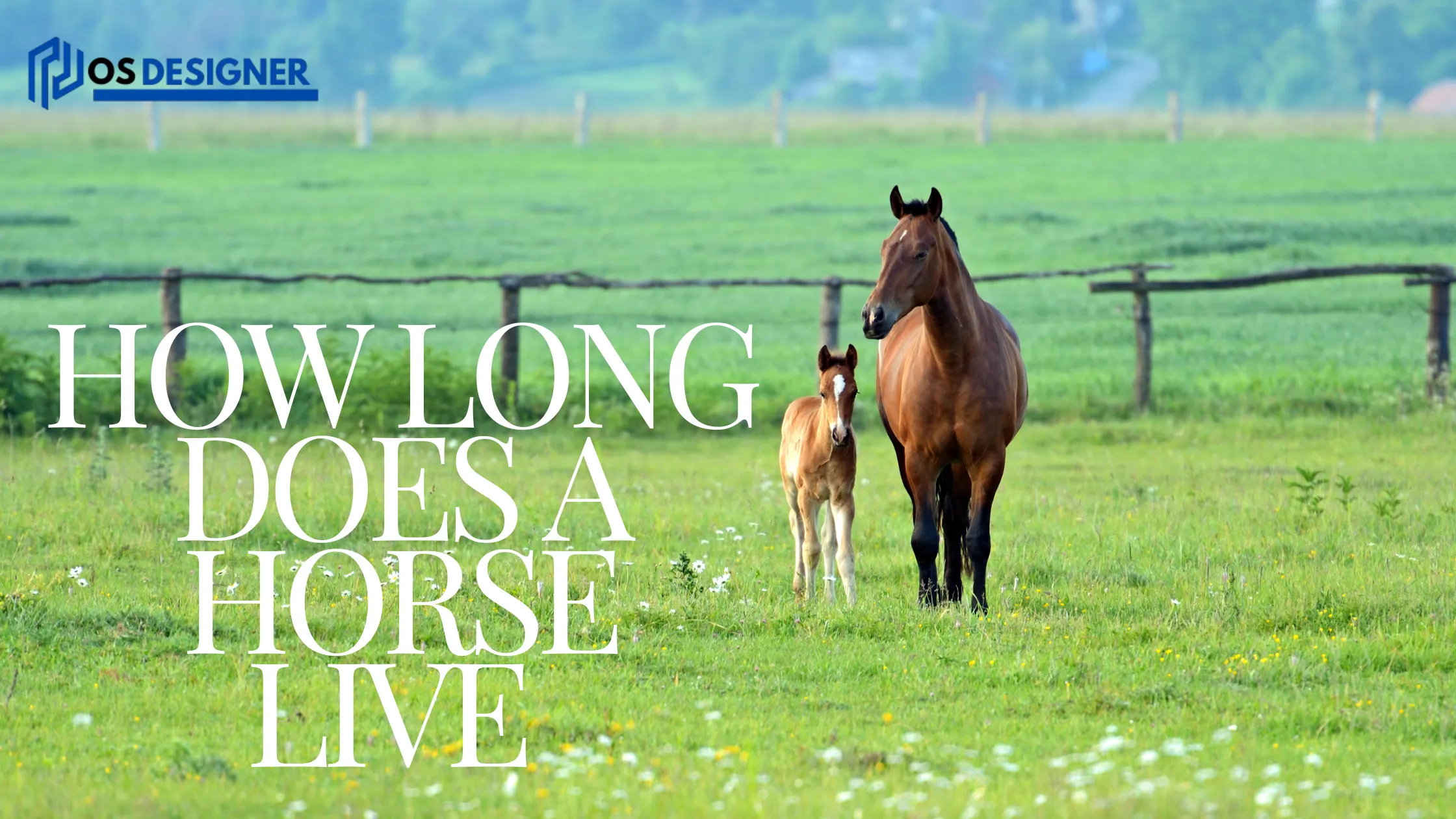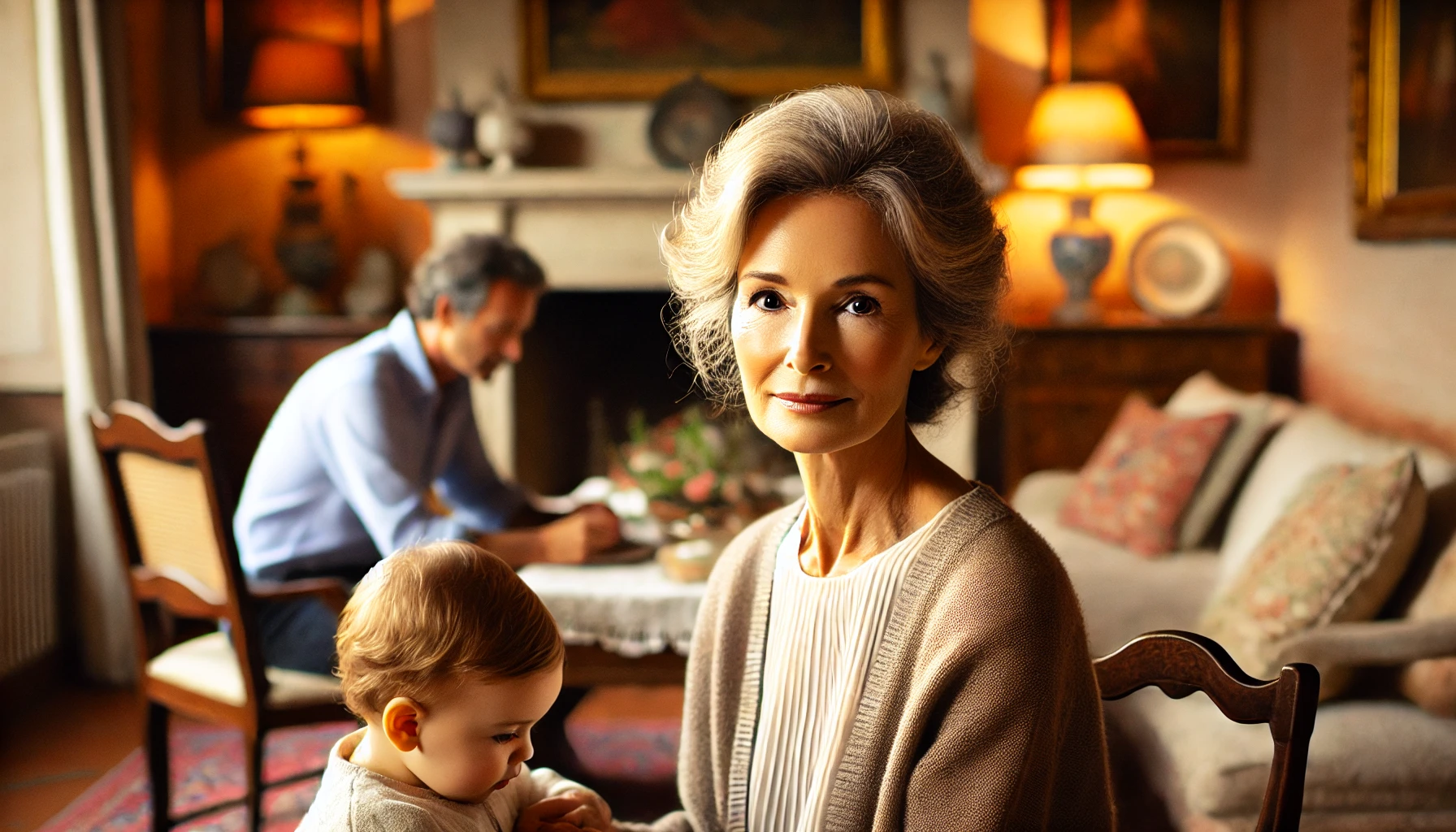Table of Contents
Have you ever wondered how long does a horse lives? Horses are majestic creatures that hold a special place in our hearts. Knowing their lifespan is essential if you’re considering owning one or already caring for a horse. This article will answer the question, “How long does a horse live?” and offer advice on how to keep your horse happy and healthy. Let’s dive into the details about horse lifespan and how you can maximize the time you have with your beloved companion.
What Is the Average Lifespan? – How Long Does a Horse Lives?
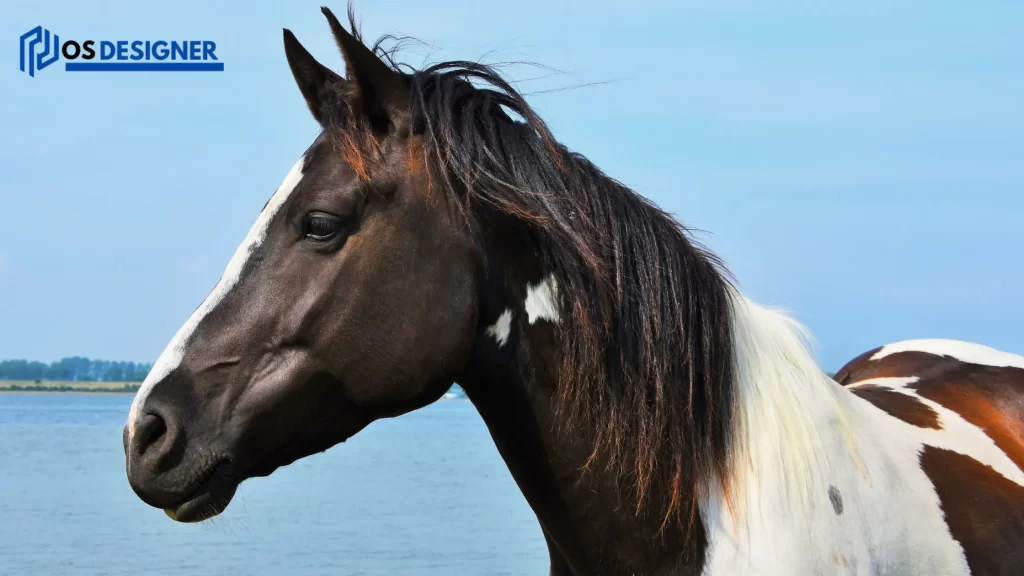
When thinking about how long horses live, the typical answer is between 25 to 30 years. However, many factors come into play that can influence this range. Some horses live into their 40s with the right care and attention. Horses’ lifespans can vary based on their breed, living conditions, and overall health.
Factors That Affect a Horse’s Lifespan
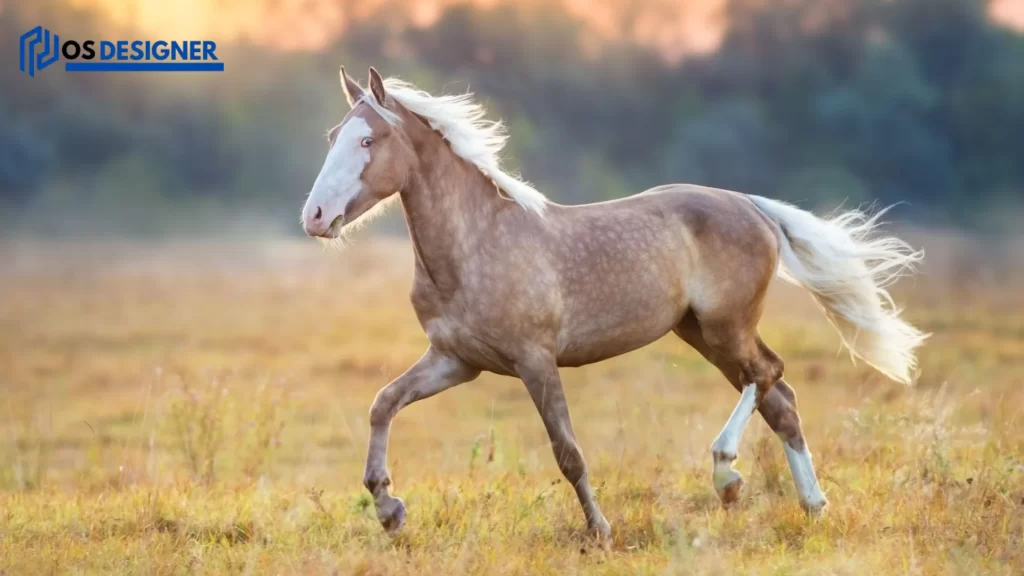
It’s not just genetics that determine how long a horse lives—there are many factors at play. By understanding these factors, horse owners can ensure they provide the best care for their horses. Let’s break down the most critical aspects:
1. Breed and Genetics
Some horse breeds are naturally longer-lived than others. For instance, Arabian horses are known for their longevity, and they have often lived for the past 30 years. Ponies also tend to outlive larger horse breeds. Genetics plays a key role in determining overall health and predispositions to certain diseases.
2. Nutrition and Diet
A horse’s diet directly impacts its lifespan. Horses need a balanced diet of forage, like hay or grass, and additional supplements if needed. Poor nutrition can lead to health issues that shorten a horse’s life. Ensuring your horse receives the right nutrients can add years to its life.
3. Exercise and Activity Levels
Horses are naturally active animals. Regular exercise keeps their muscles strong, their minds stimulated, and their weight healthy. Horses that don’t receive adequate physical activity are prone to obesity and related health problems, which can reduce their lifespan.
4. Veterinary Care and Preventative Health
Just like humans, horses need regular checkups to stay in top condition. Routine veterinary visits can catch potential problems early, and vaccinations and deworming can prevent diseases. Preventative health care ensures your horse remains healthy for as long as possible.
5. Living Conditions
Horses thrive in environments where they can move freely and interact with other horses. Clean, spacious living areas are essential. Horses kept in small or unsanitary environments may suffer from respiratory issues and other health concerns, which can reduce their life expectancy.
Also Read: How Much Does It Cost to Get Rid of Bed Bugs? Shocking Truth Revealed!
How Different Horse Breeds Compare in Lifespan
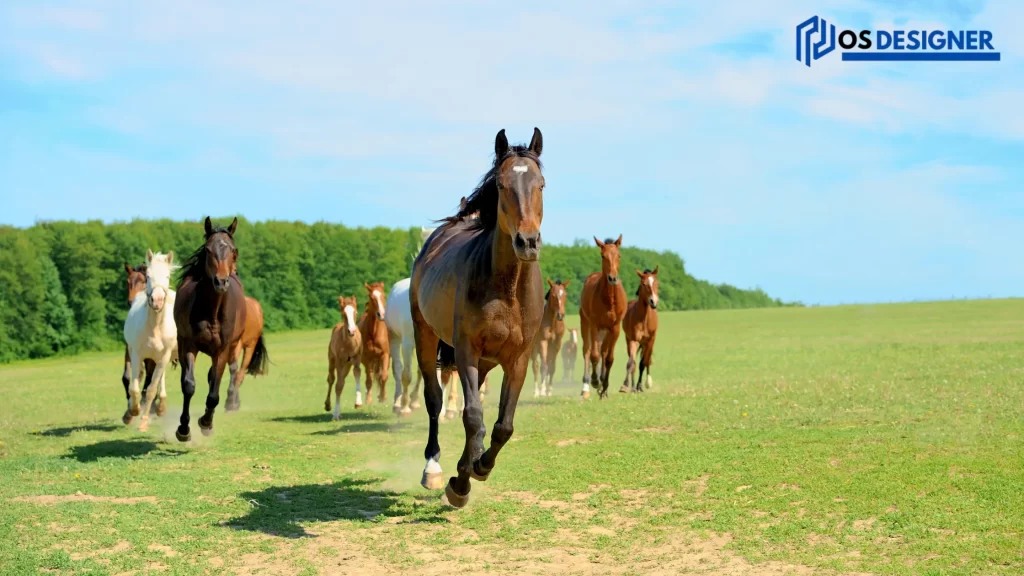
Not all horses live the same amount of time. While the average lifespan is 25 to 30 years, different breeds have varying longevity. Here’s a closer look at how the lifespan of horses compares based on breed:
Arabian Horses
Arabians are known for their long lives, often reaching 35 years or more. They are hardy animals with a rich history of endurance and survival, contributing to their longevity.
Thoroughbreds
Thoroughbreds, typically used for racing, have a shorter lifespan, usually around 25 to 28 years. Their high-energy lifestyle and intense physical activity sometimes shorten their life expectancy.
Ponies
Ponies often live longer than full-sized horses, with many living well into their 30s and even 40s. Their smaller size and more manageable energy levels contribute to their long life.
Draft Horses
Larger breeds like Clydesdales or Shire horses tend to have shorter lifespans, averaging around 20 to 25 years. Their size places more strain on their bodies, which can reduce their overall lifespan.
Also Read: How Much Does a Hay Bale Weigh? Uncover the Shocking Truth!
Common Health Problems in Older Horses
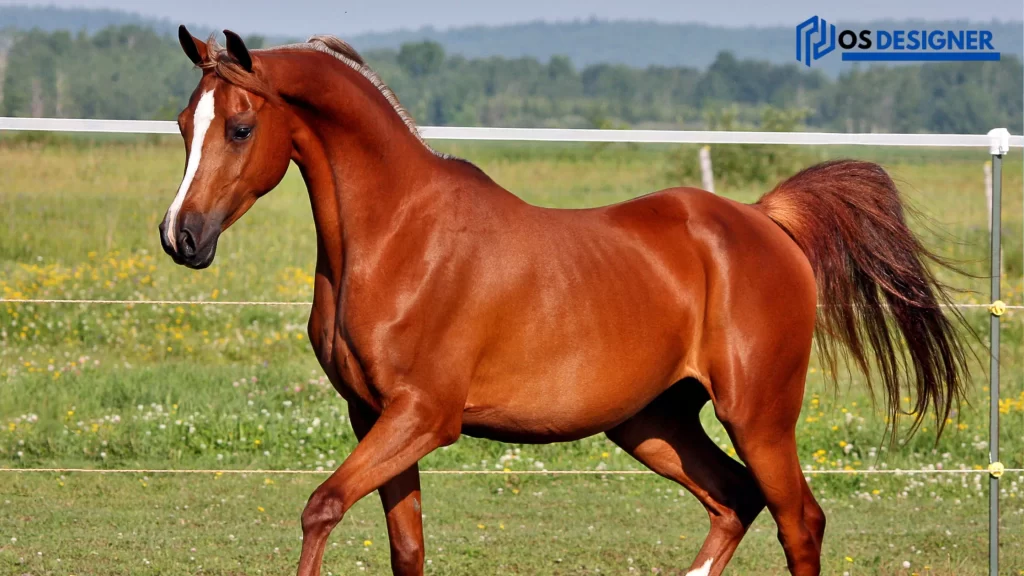
As horses age, they are more prone to certain health problems. Identifying these issues early and managing them properly can help extend their lives. Let’s explore the common health concerns that older horses face:
Dental Issues
One of the most common problems in older horses is dental wear. Horses’ teeth grow continuously throughout their lives, and older horses may have difficulty chewing due to worn or damaged teeth. Regular dental care can help ensure your horse maintains good health into old age.
Arthritis and Joint Problems
Just like humans, horses experience joint problems, particularly arthritis, as they age. Stiffness in the joints, swelling, and reduced mobility are all signs of arthritis. Regular exercise and joint supplements can help manage these symptoms.
Weight Management
Older horses may struggle to maintain their weight, either losing too much weight due to difficulty eating or gaining weight because of a slowed metabolism. Monitoring your horse’s weight and adjusting their diet as they age can help manage this issue.
Cushing’s Disease
Cushing’s Disease is common in older horses and affects the pituitary gland, leading to symptoms like weight loss, increased thirst, and long, shaggy coats. Treatment from a veterinarian can help manage this Disease and improve the quality of life for older horses.
How to Extend Your Horse’s Lifespan
Now that we understand the factors influencing a horse’s lifespan let’s look at practical tips for extending your horse’s life. Whether you own a young foal or an aging horse, these tips will help ensure your horse lives as long and healthy a life as possible.
Provide a Balanced Diet
Feed your horse high-quality hay and ensure they always have access to fresh water. You may also need to include grains or vitamin supplements based on your horse’s age, weight, and health status. Work with your vet to develop a feeding plan that meets your horse’s specific needs.
Ensure Regular Exercise
Make sure your horse stays active! Daily exercise is important for maintaining physical and mental health. Whether through riding, groundwork, or simply allowing your horse ample pasture time, movement is key to keeping them strong and healthy.
Monitor Weight and Prevent Obesity
Obesity is a common problem for horses that don’t get enough exercise or are overfed. Regularly monitoring your horse’s weight and adjusting their diet and exercise can help prevent health issues associated with obesity.
Schedule Regular Veterinary Checkups
Early detection is critical when it comes to maintaining your horse’s health. Regular visits to the vet for vaccinations, dental care, and overall health checks can catch potential problems before they become serious.
Provide Social Interaction
Horses are social animals. Providing your horse with the company of other horses can greatly improve its quality of life. Horses kept in isolation tend to develop stress-related health issues that can shorten their lifespan.
Maintain a Clean Living Environment
Clean stables, fresh bedding, and plenty of space for your horse to move freely contribute to their overall well-being. Ensuring your horse has a clean and comfortable living space helps prevent illness and injury.
Also Read: How Long Does a Horse Live? Discover Its Lifespan Now
Signs of Aging in Horses
As your horse ages, you’ll notice certain signs indicating they are reaching the later stages of their life. Recognizing these signs early can help you adjust their care to suit their changing needs.
Gray Hair
Just like humans, horses start to gray as they age, typically around their muzzles and eyes.
Decreased Energy Levels
Older horses tend to slow down and may not be as active as they once were. They might show less enthusiasm for exercise or have reduced stamina during rides.
Changes in Weight
Aging horses may have difficulty maintaining their weight. They might lose muscle mass or, in some cases, become overweight if their metabolism slows down.
Dental Problems
Horses’ teeth continue to grow throughout their lives, and older horses often experience dental problems such as wear and tear, making it harder for them to chew their food properly.
Joint Stiffness
Joint problems, such as arthritis, are common in older horses. You may notice stiffness or reluctance to move, especially after periods of rest.

